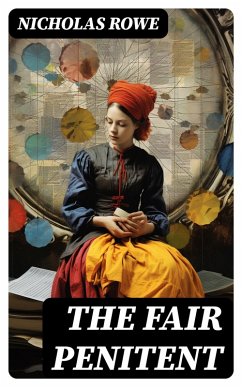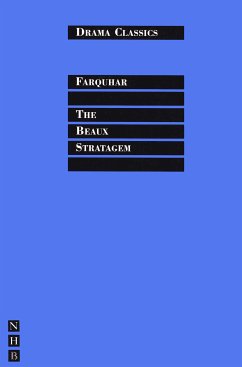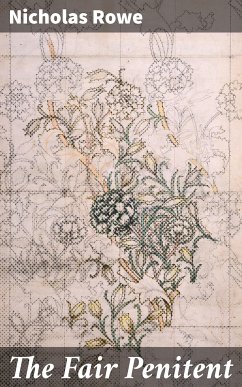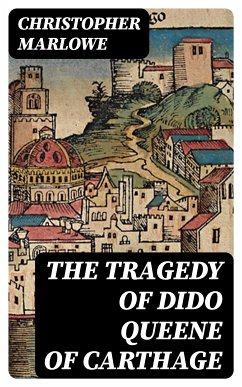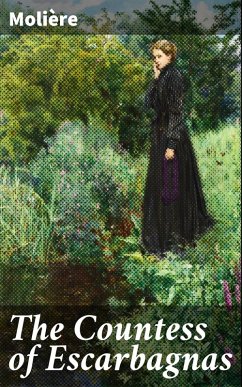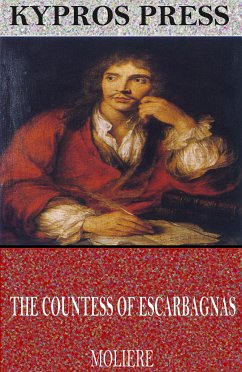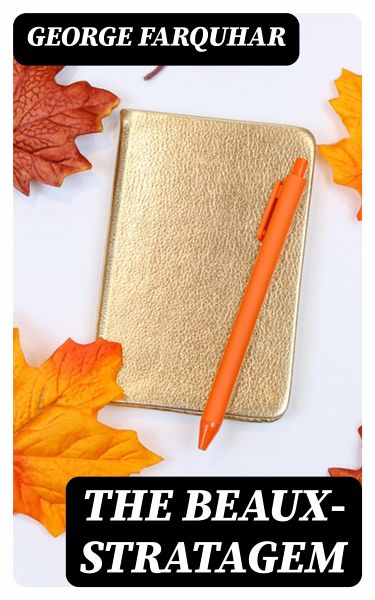
The Beaux-Stratagem (eBook, ePUB)
A comedy in five acts

PAYBACK Punkte
0 °P sammeln!
In George Farquhar's comic masterpiece, "The Beaux-Stratagem," the audience is drawn into a vibrant tapestry of Restoration England, where trickery, love, and the quest for social mobility intertwine. The play is characterized by its witty dialogue and richly developed characters, employing a blend of farce and romance that critiques societal norms of the early 18th century. Farquhar employs a lively narrative style, utilizing intricate plotting and a keen sense of humor to explore themes of deception and the fluidity of social class, all while retaining a heartwarming optimism about human con...
In George Farquhar's comic masterpiece, "The Beaux-Stratagem," the audience is drawn into a vibrant tapestry of Restoration England, where trickery, love, and the quest for social mobility intertwine. The play is characterized by its witty dialogue and richly developed characters, employing a blend of farce and romance that critiques societal norms of the early 18th century. Farquhar employs a lively narrative style, utilizing intricate plotting and a keen sense of humor to explore themes of deception and the fluidity of social class, all while retaining a heartwarming optimism about human connection and integrity. George Farquhar, born in 1678 into a tumultuous period of political and social upheaval, experienced both the vitality of the theatre and the stark realities of life, notably suffering from poverty and illness. His personal struggles as a playwright and soldier greatly informed his work. "The Beaux-Stratagem" reflects his profound insights into human nature and social interactions, ever influenced by the turbulent transitions of his time, making him a distinctive voice in the landscape of Restoration drama. This play remains a captivating exploration of the human condition, combining humor with a critique of societal mores. Ideal for lovers of classic theatre and those interested in the complexities of 18th-century social dynamics, "The Beaux-Stratagem" is a must-read, offering both entertainment and a thought-provoking reflection on the nature of love and ambition.
Dieser Download kann aus rechtlichen Gründen nur mit Rechnungsadresse in A, B, BG, CY, CZ, D, DK, EW, E, FIN, F, GR, H, IRL, I, LT, L, LR, M, NL, PL, P, R, S, SLO, SK ausgeliefert werden.





